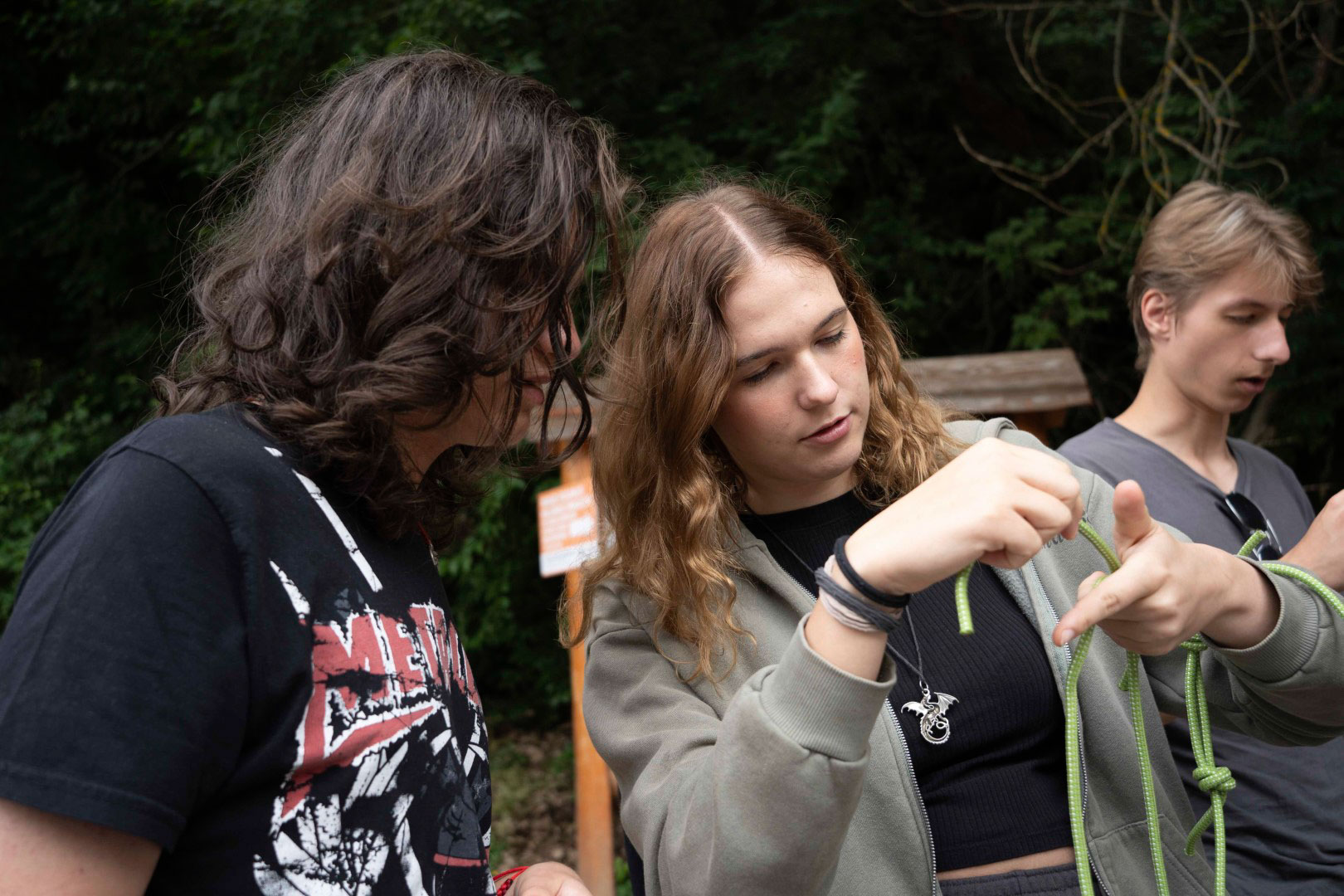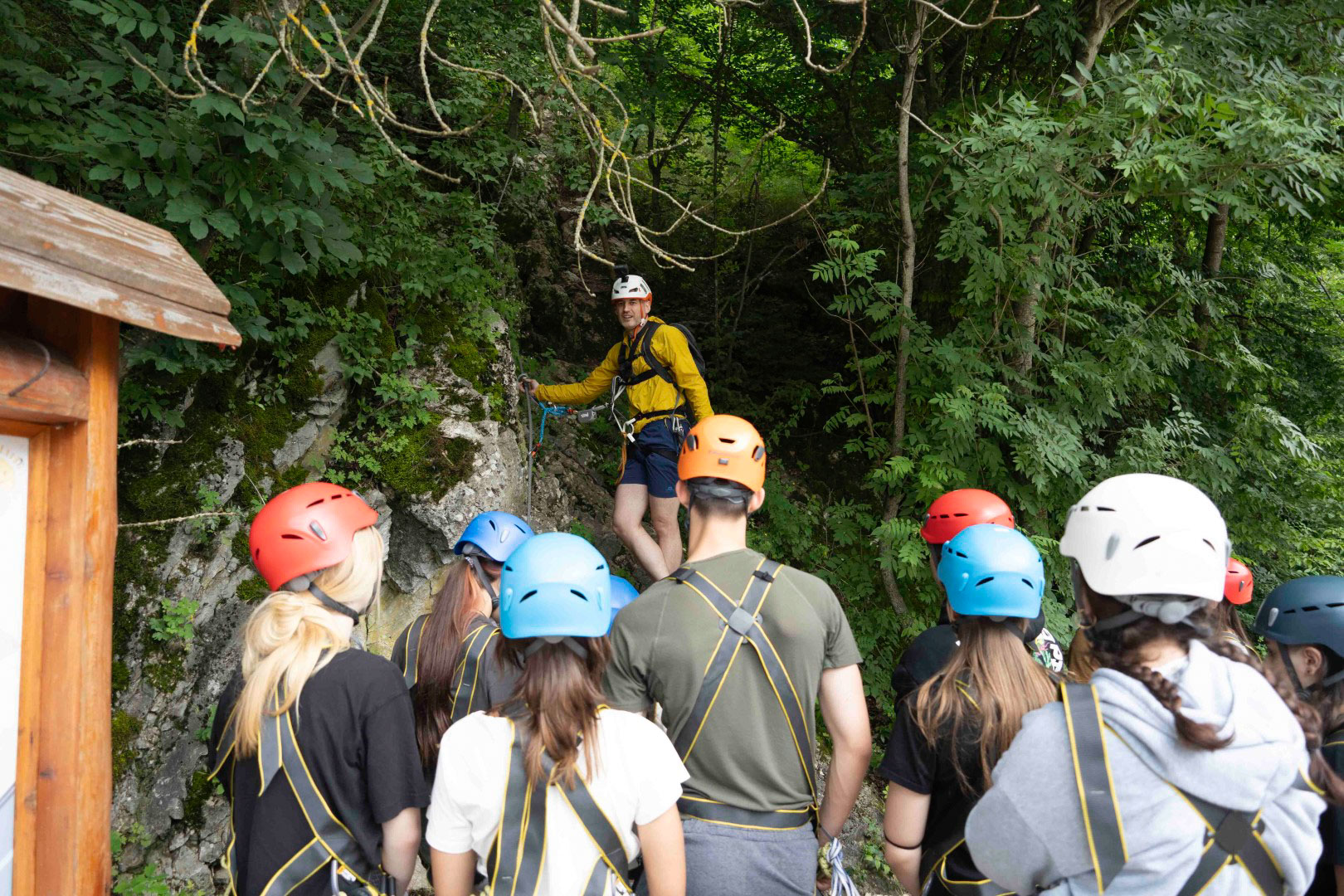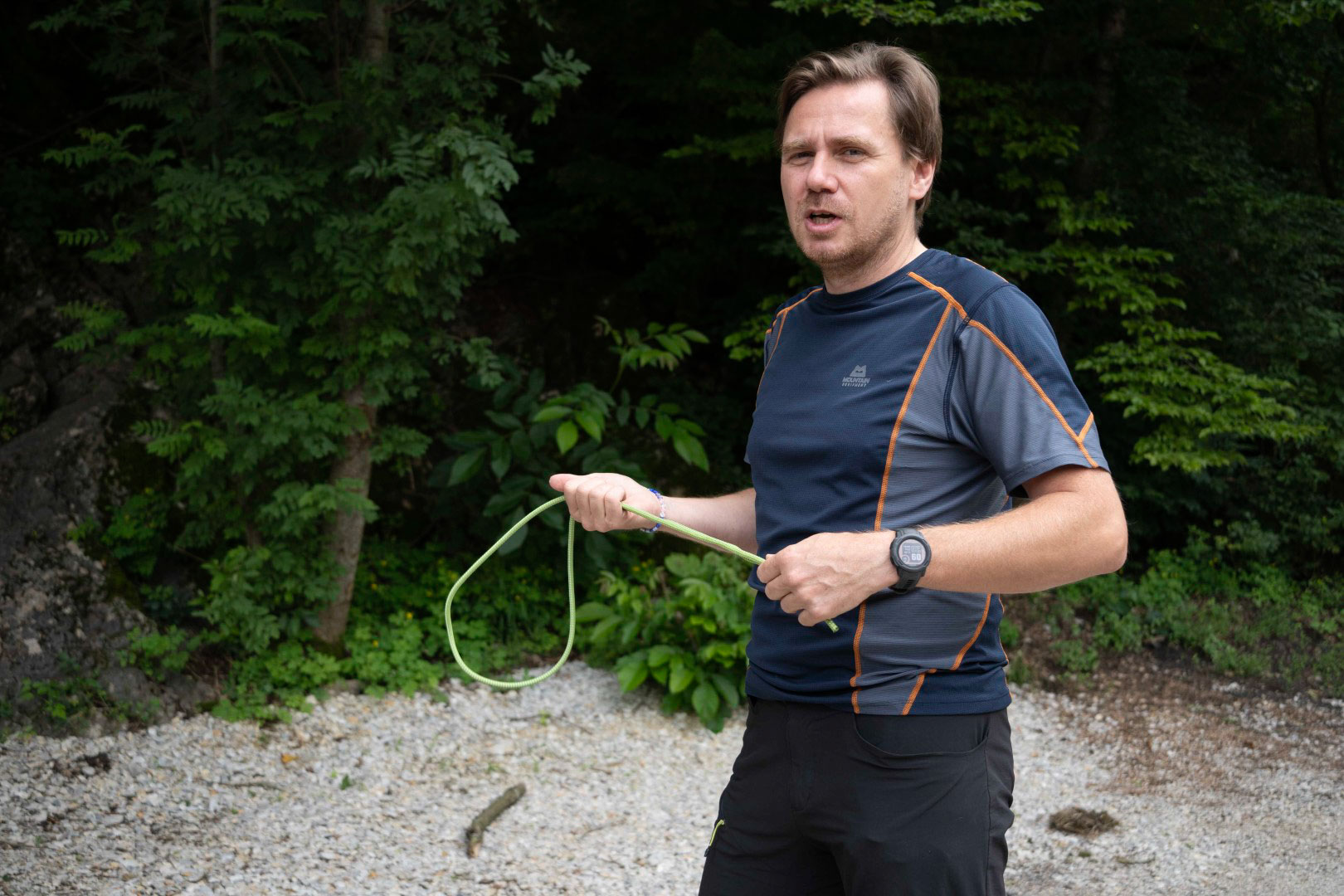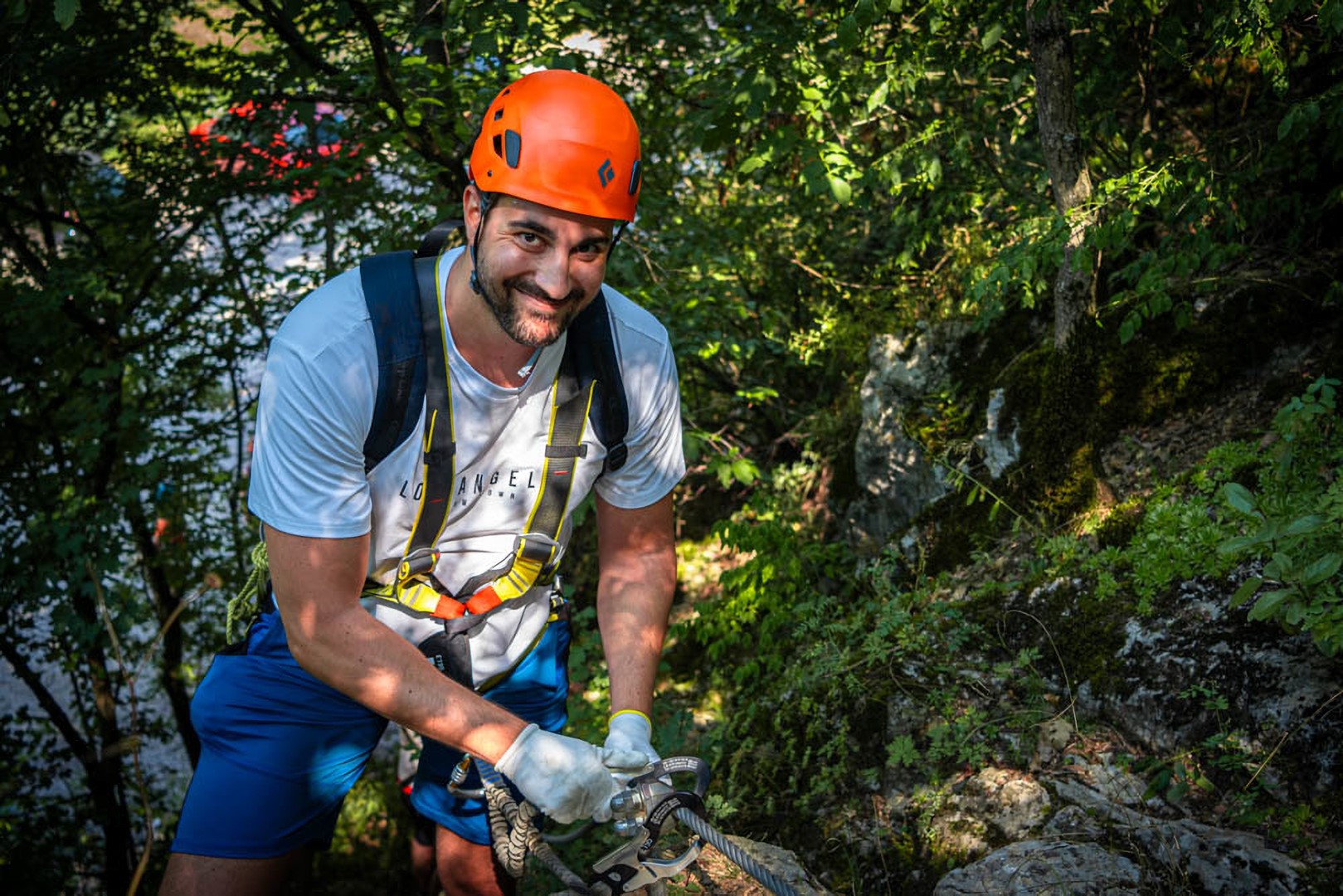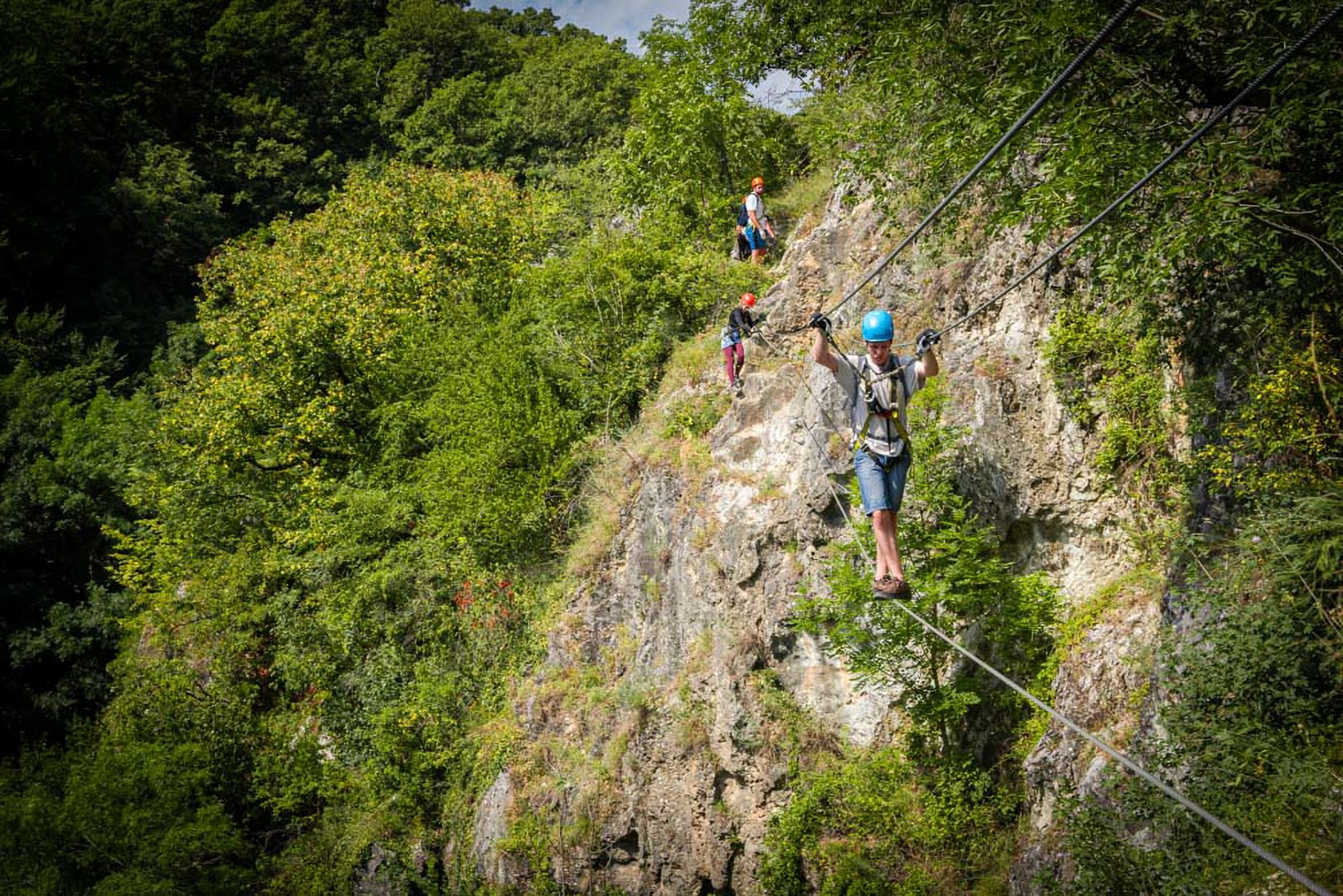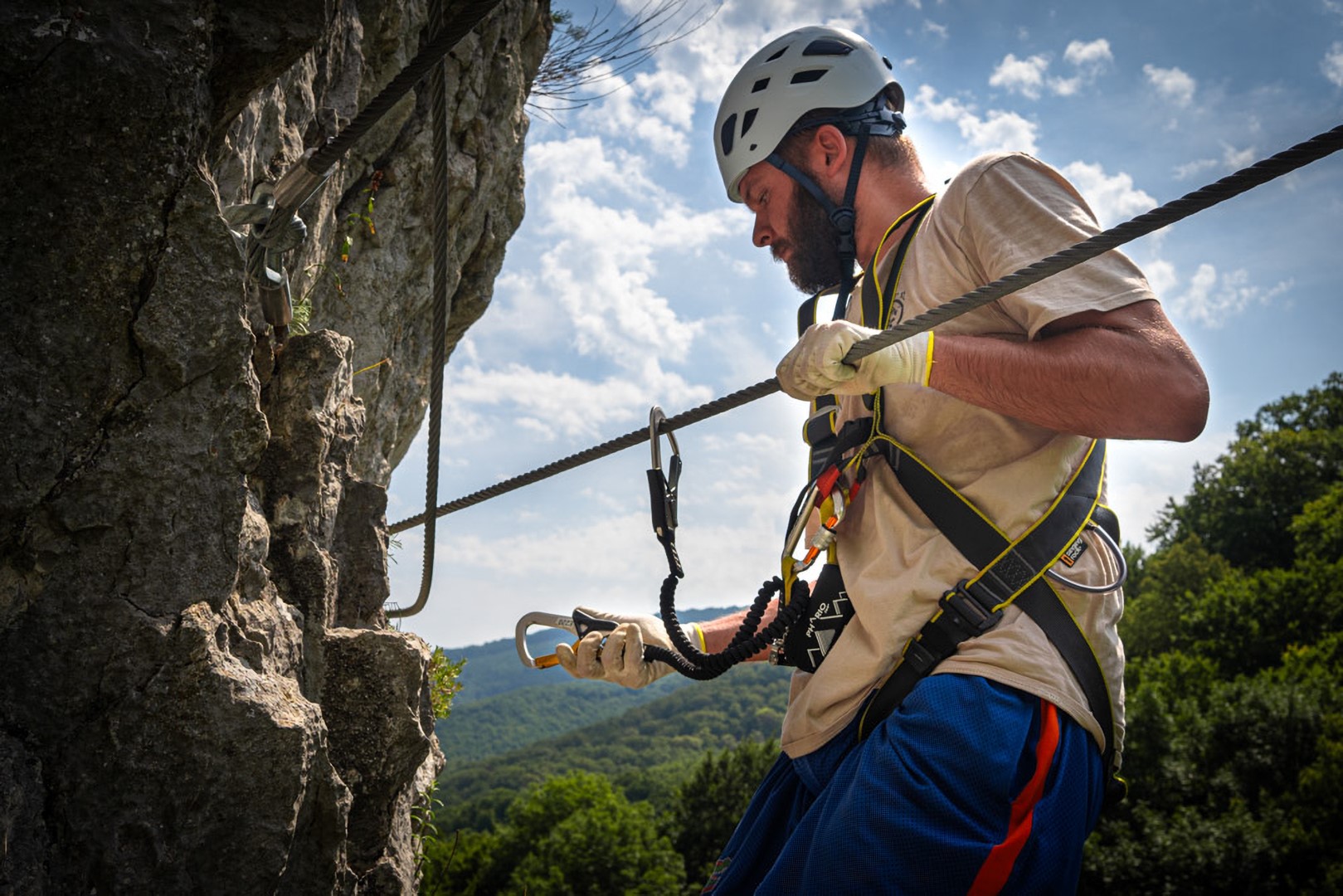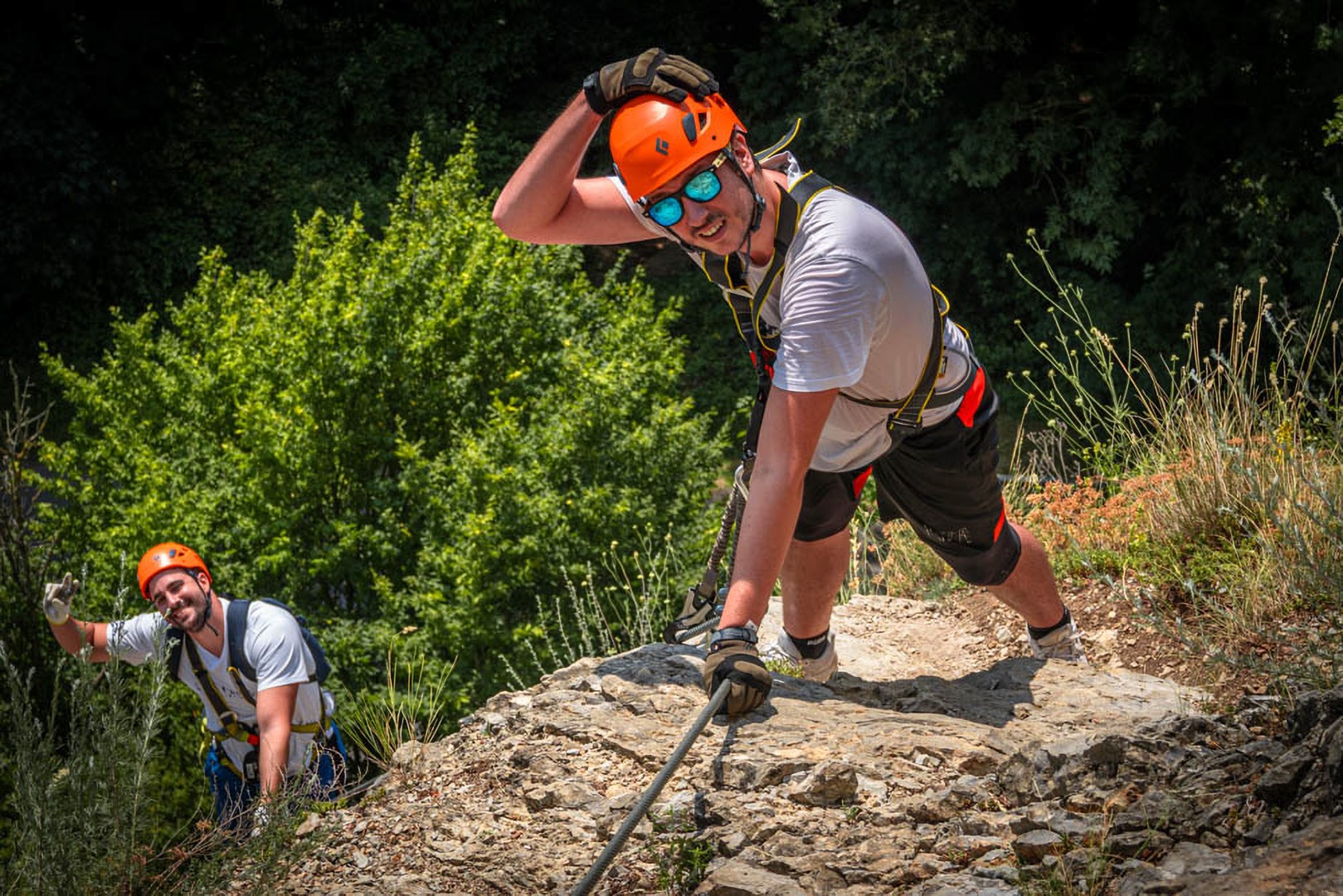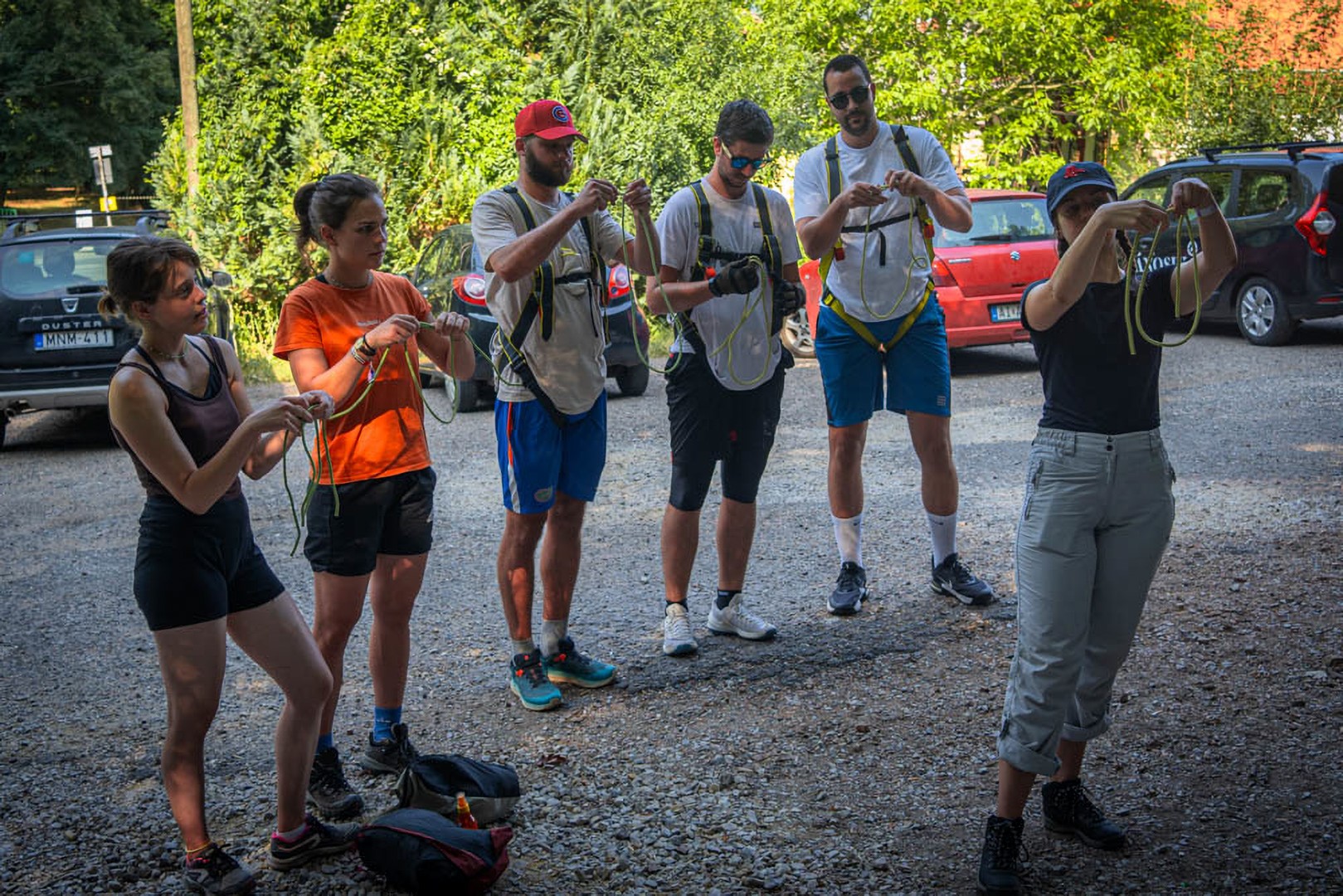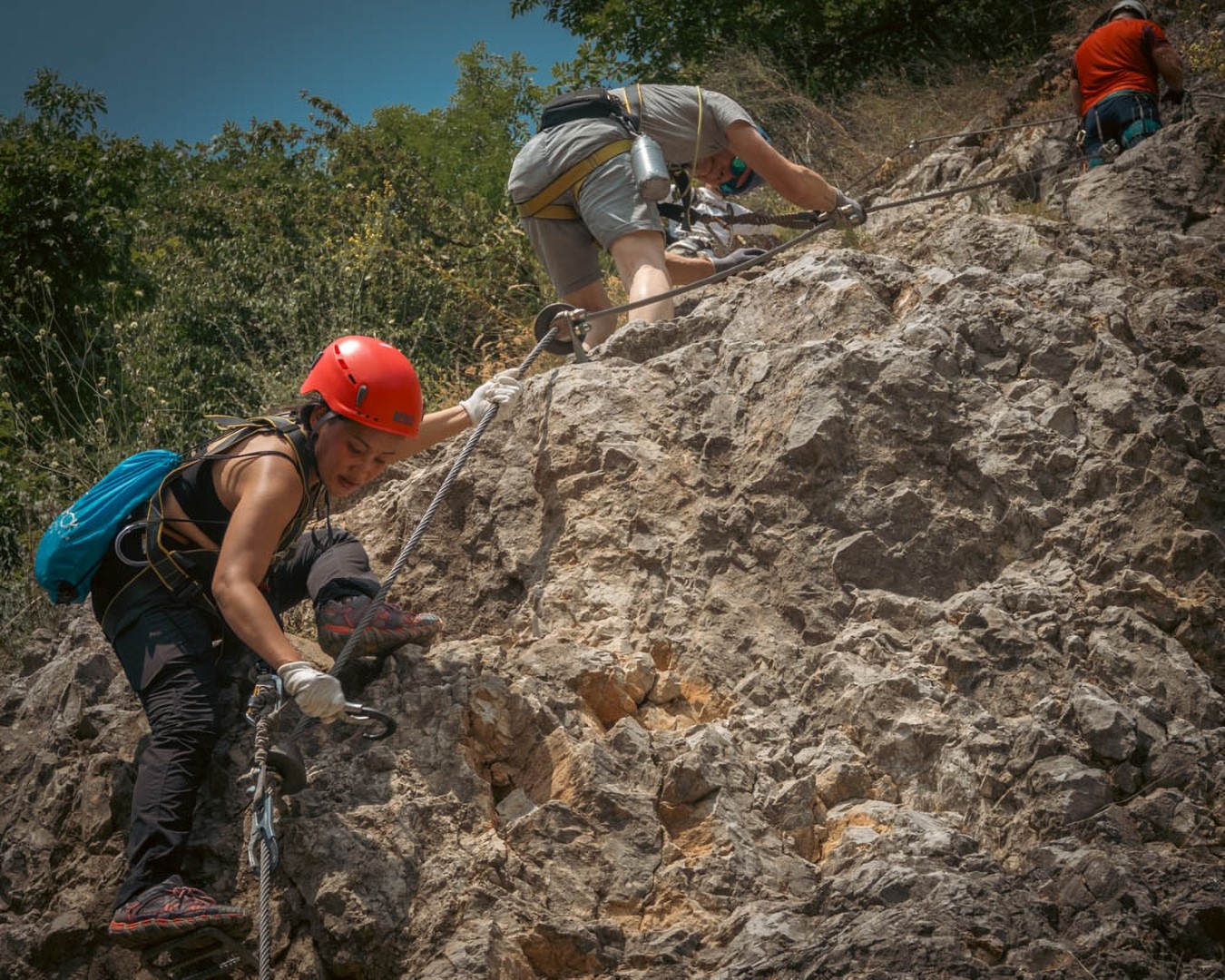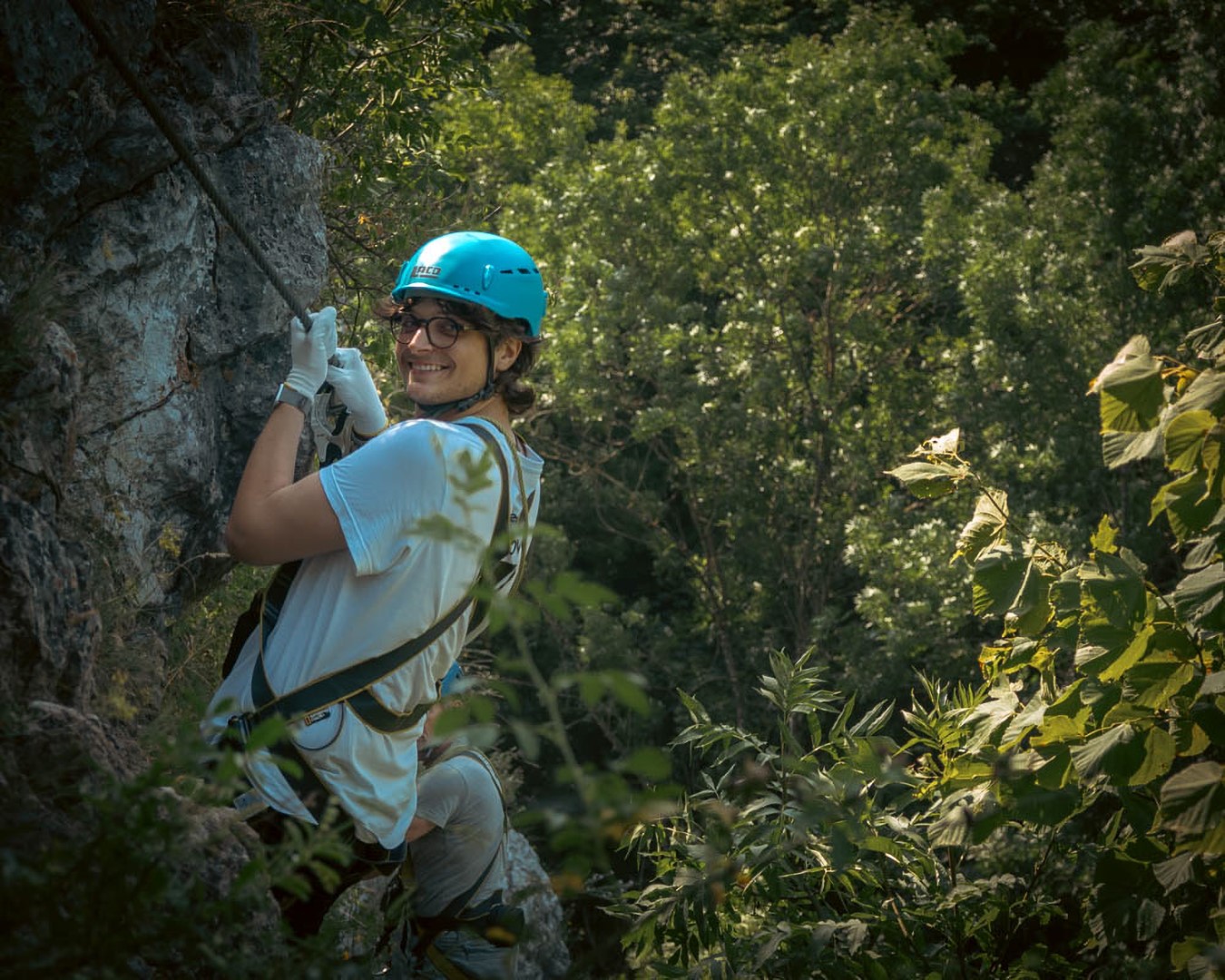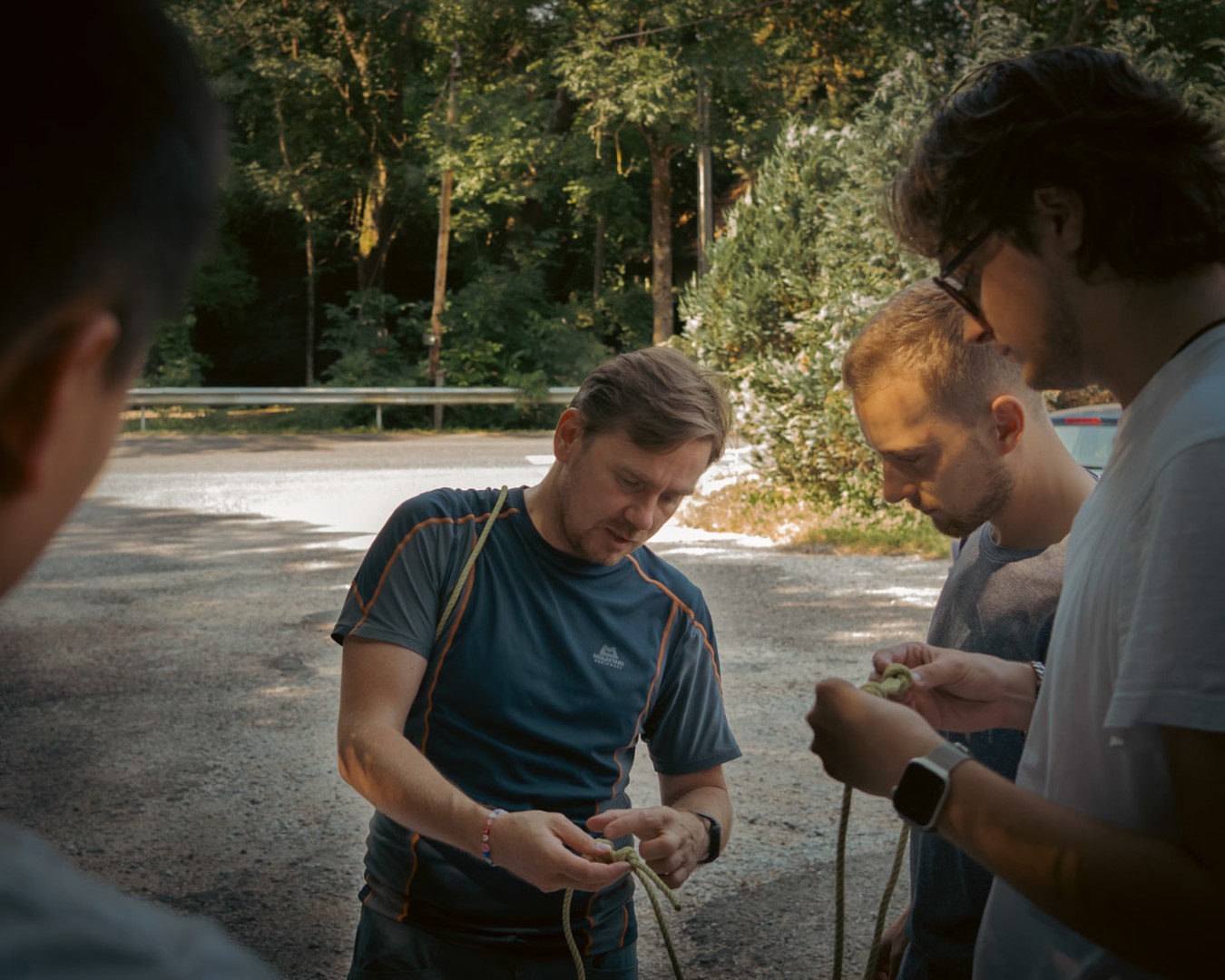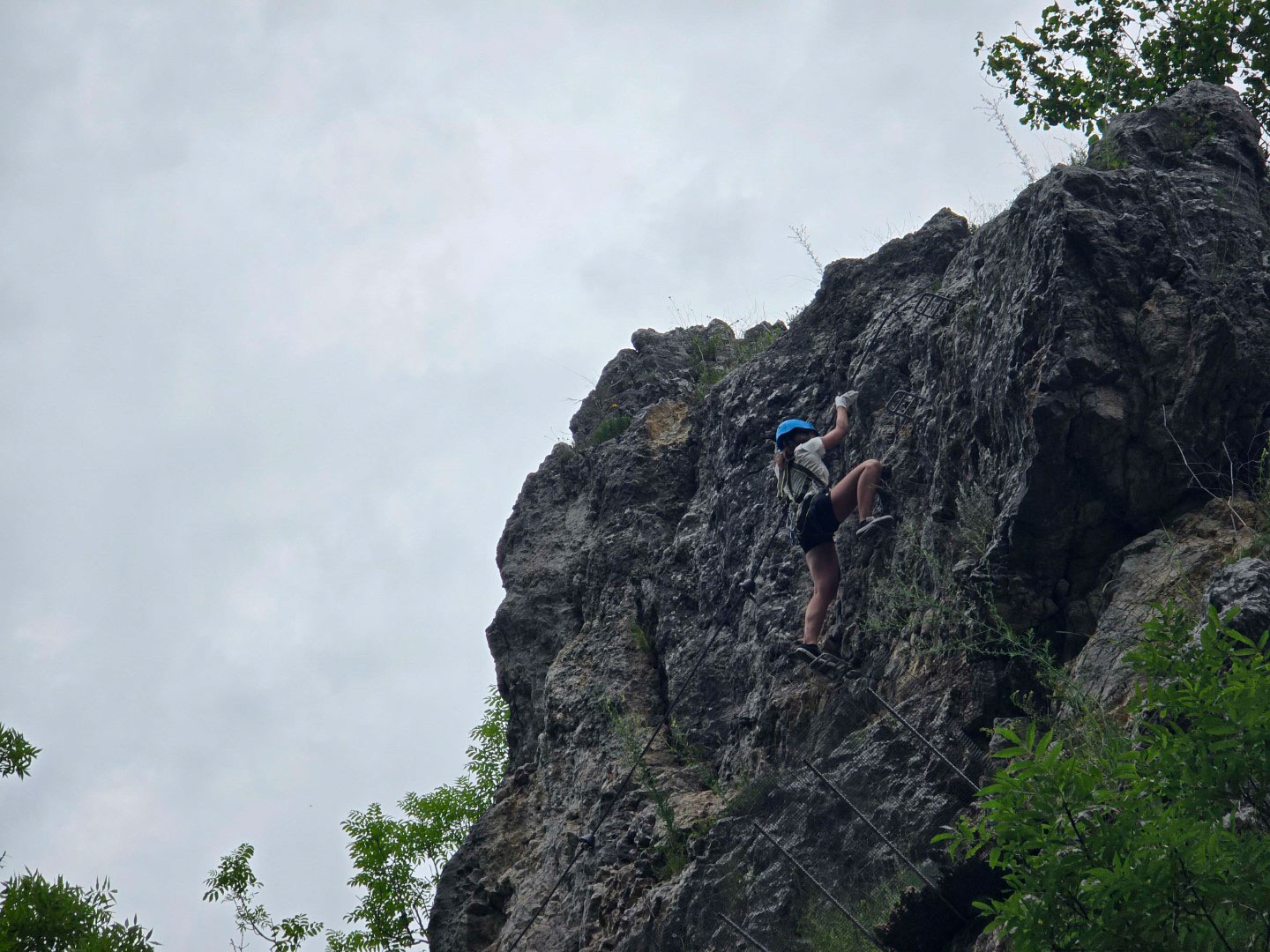Video Recap of our activity at Via Ferrata Felsotarkany
This summer, Felsőtárkány hosted a thrilling series of Via Ferrata events in the beautiful Bükk Mountains, supported by the European Union’s Erasmus+ program. In all three events accross June and July 2024 participants had the chance to connect with nature, gain new skills, and challenge themselves on the rock.
Each day brought together a new group of participants, creating a fresh and dynamic mix of adventurers for every event. Under sunny skies and ideal weather conditions, participants geared up for an unforgettable experience. The scenery was breathtaking, the mood was high, and the enthusiasm was infectious!
Each event began with a hands-on orientation from professional trainers, who introduced participants to basic climbing and safety techniques, from harnessing to knot-tying. Dividing into smaller groups allowed everyone to get personalized guidance and make the most of their time on the cliffs.
Pre-event safety videos ensured that participants were well-prepared, while on-site briefings reinforced key practices.
This series offered an amazing way for each group to connect with nature and each other, gaining confidence as they tackled the rock face together. The Felsőtárkány Via Ferrata days became more than just an outdoor event—they built a community of new climbers, ready to take on more challenges.
Read more about this project here: Operation Hook II. Take the opportunity to get involved in important activities. Stay in the loop about upcoming projects by connecting with E29 on social media or find out more about available opportunities in our activities page.
Videos
Videos of the other activities at Via Ferrata Felsotarkany
Photo Gallery
A few more moments from these activities :)

